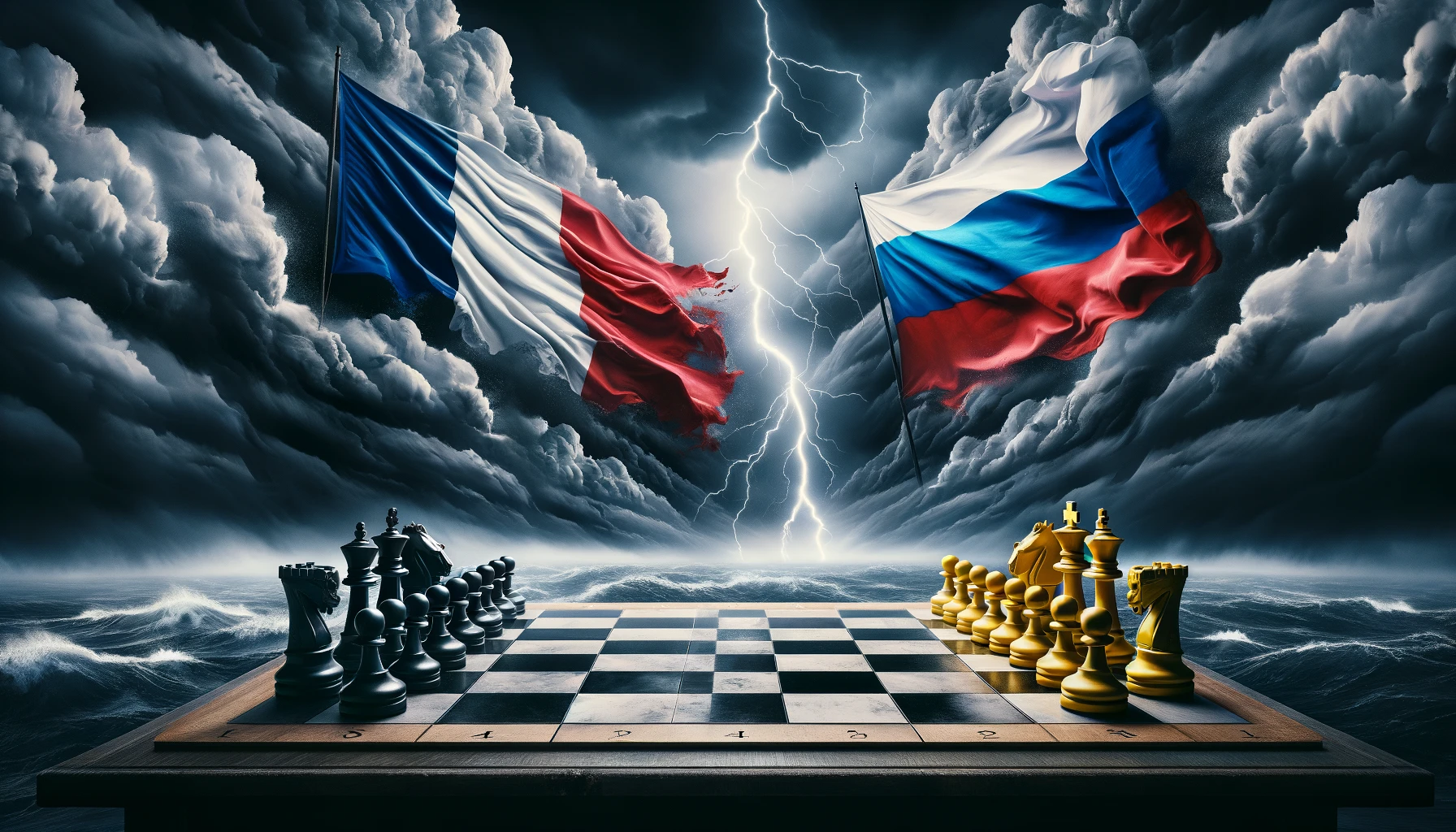French President Emmanuel Macron has brought up a controversial idea by suggesting the potential deployment of Western troops to Ukraine, escalating tensions in the face of Russia’s military actions.
During a meeting with European leaders, Macron expressed determination to prevent Russia from achieving victory in the ongoing conflict in Ukraine. “We will do whatever it takes to ensure that Russia cannot win this war,” he asserted.
According to a source within the European military, European allies, with the backing of the United States, have been considering this plan for some time. However, the French foreign ministry clarified that the proposal does not involve direct combat between French troops and Russian forces in Ukraine.
Lithuanian Defense Minister Arvydas Anusauskas hinted that the mission would likely involve training and support rather than direct combat. He mentioned the possibility of training missions and components but refrained from disclosing further details as discussions are ongoing among participating countries.
Camille Grand, a former senior NATO official, interpreted Macron’s statements as a significant political signal. He outlined the message being conveyed to various stakeholders: solidarity with Ukraine, the importance of the conflict to Europe, and the high stakes involved.
Macron’s stance marks a departure from his previous efforts to mediate between Russia and Ukraine. French military historian Michel Goya characterized it as a verbal escalation, emphasizing the seriousness of the situation.
Alexander Gabuev, director of the Carnegie Russia Eurasia Center, noted the toughening of Macron’s position but highlighted the ambiguity surrounding the implications. He suggested that Macron’s statements might be a strategic move to pressure Putin into negotiations on Ukrainian terms.
Despite Macron’s remarks, several countries, including Germany, Britain, and Spain, clarified that they have no plans to deploy troops to Ukraine. The Kremlin reacted sternly, cautioning against NATO involvement in Ukraine and warning of the potential for direct confrontation.
Observers have pointed out that Macron’s announcement could reinforce Russia’s narrative of defending itself against NATO-backed forces. Fyodor Lukyanov, head of a Kremlin-linked think tank, remarked that Macron’s position was unsurprising to Russia, indicating potential consequences for further escalation.
Since the beginning of the conflict, Putin has hinted at the possibility of using tactical nuclear weapons, raising concerns about the potential for nuclear escalation. Lukyanov suggested that France’s tougher stance could prompt Russia to intensify its rhetoric and reliance on nuclear deterrence.
This article is based on the following article:
https://www.kyivpost.com/post/28730

Background Information
Understanding these key points provides a framework for analyzing the potential consequences of Macron’s proposal and the broader geopolitical implications of the ongoing Ukraine conflict.
1. The Ukraine Conflict
– The conflict began in 2014 but escalated significantly with Russia’s full-scale invasion of Ukraine in February 2022. The war has seen extensive military, economic, and humanitarian consequences for both countries and has drawn widespread international condemnation of Russia.
2. Tactical Nuclear Weapons
– These are nuclear weapons designed for use on the battlefield in military situations, with relatively short ranges and lower yield compared to strategic nuclear weapons that are designed to destroy cities or large targets. The mention of tactical nuclear weapons is significant because of the potential escalation it represents in military conflicts, introducing the risk of nuclear warfare into conventional conflicts.
3. NATO and Western Involvement
– The North Atlantic Treaty Organization (NATO) is a military alliance of European and North American countries formed in 1949. Western countries, including NATO members, have provided various forms of support to Ukraine, including military aid, training, and economic sanctions against Russia. However, direct military intervention by sending troops has been a line not crossed, partly to avoid a direct military confrontation with Russia.
4. France’s Role
– France, under President Macron, has played a significant diplomatic role in the European response to the Ukraine conflict. Macron has sought to mediate between Russia and Ukraine while also supporting sanctions against Russia and providing military aid to Ukraine.
5. Russian Nuclear Doctrine
– Russia’s military doctrine includes the potential use of tactical nuclear weapons as a deterrence tool or in response to conventional military threats that jeopardize the state’s existence. The mention of these weapons by Russian officials serves as a warning against Western military escalation in Ukraine.
6. Implications of Western Troops in Ukraine
– The presence of Western, particularly NATO, troops in Ukraine would mark a significant escalation in the conflict. It could potentially lead to a direct military confrontation between NATO and Russia, raising the stakes of the conflict considerably. This is especially sensitive given Russia’s nuclear capabilities.
7. International Reactions
– The international community has reacted variably to the conflict, with Western countries largely supporting Ukraine and condemning Russia’s actions, while other countries have taken more neutral stances. The idea of sending Western troops to Ukraine has been met with caution, reflecting concerns about escalating the conflict further.
Please subscribe to Insight Fortnight, our biweekly newsletter!
